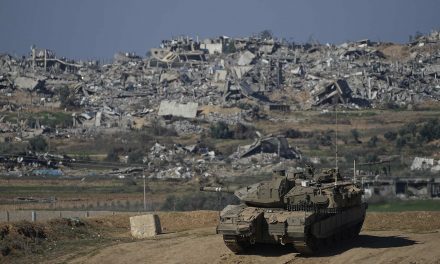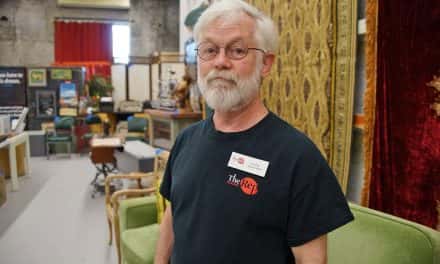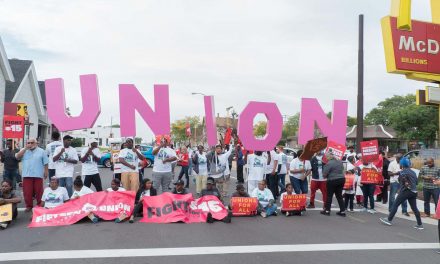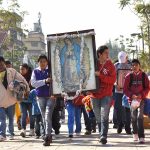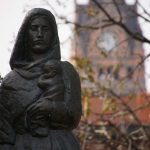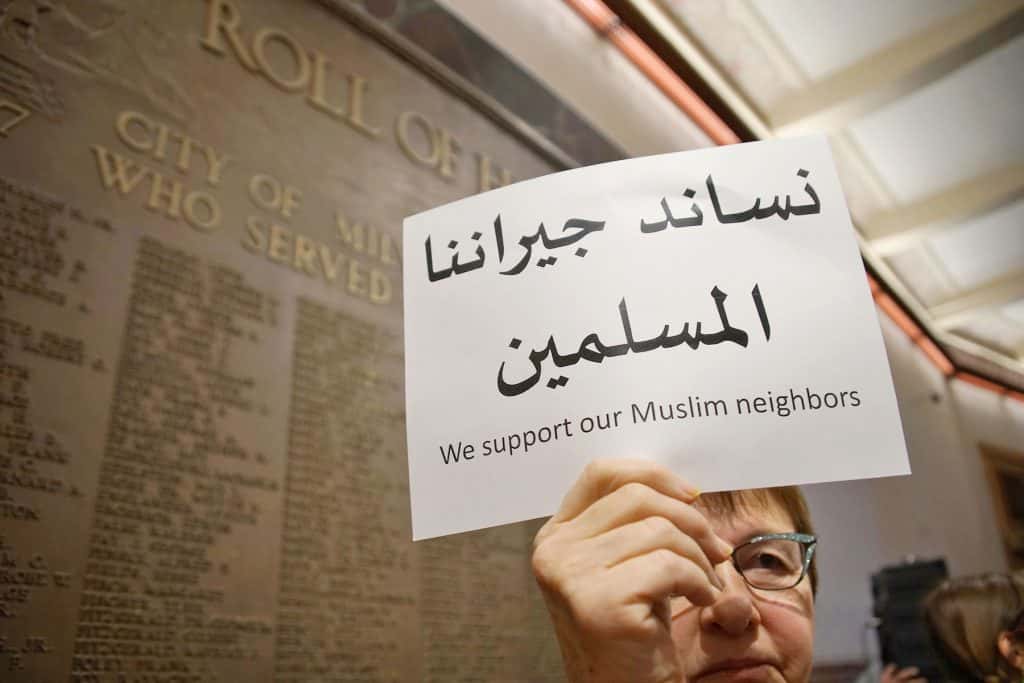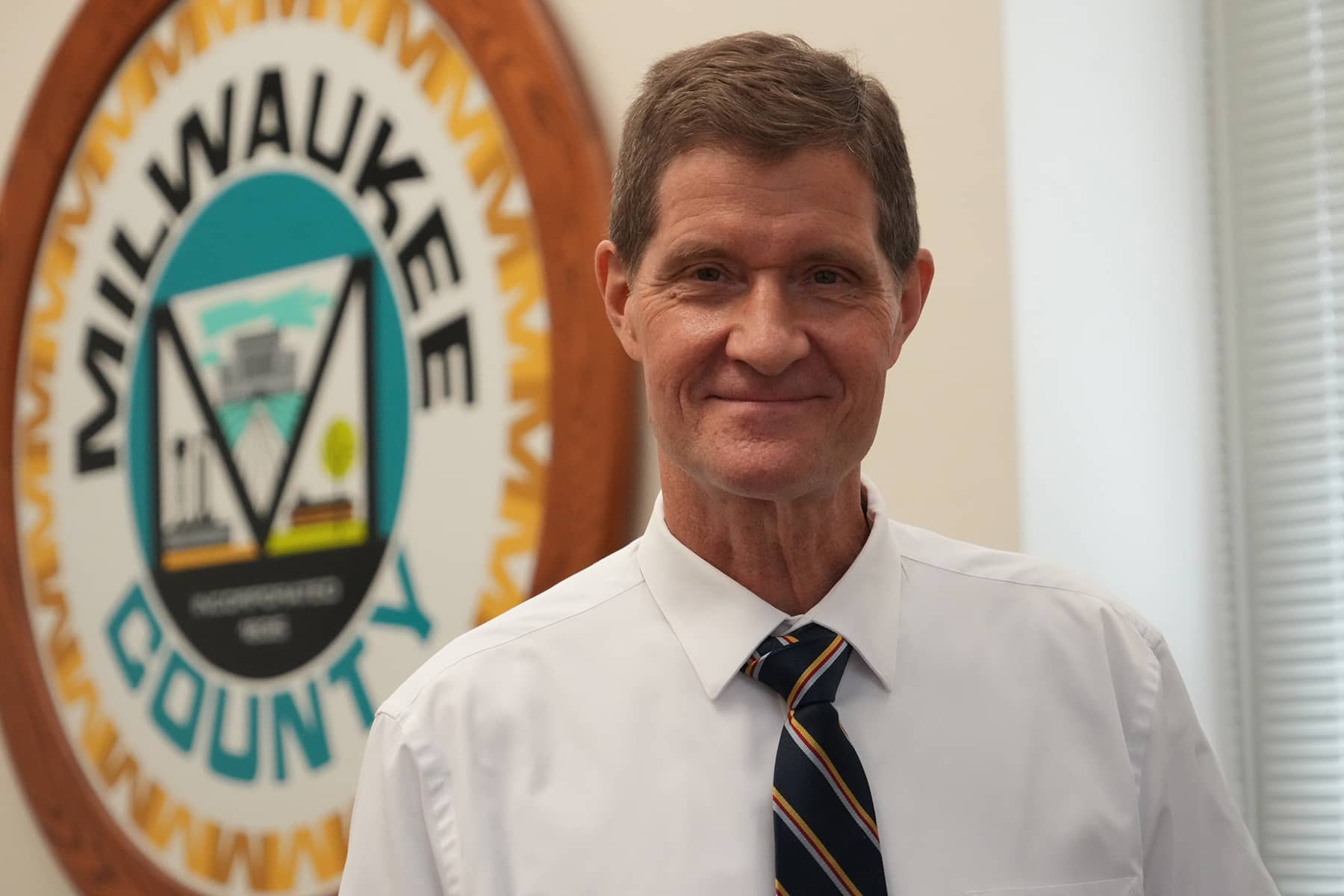
Years before John T. Chisholm was elected as the Milwaukee County District Attorney, or even considered attending law school, he was deployed to one of the most volatile regions in the world during the Cold War.
That experience exposed him to the realities of geopolitical tensions and the weight of responsibility that came with serving along the tense Demilitarized Zone (DMZ) between North and South Korea.
Like many veterans, District Attorney Chisholm has remained relatively quiet about his military service. But during a candid interview with “Milwaukee Independent,” he shared personal memories from that early and influential part of his life.
“Regarding my story of service in the U.S. Army, there is absolutely nothing heroic,” said Chisholm. “It is nothing in comparison to the thousands who came before me, and certainly the thousands who have served afterward and were deployed for long periods in combat zones.”
Chisholm graduated from Marquette High School in 1981, a time when the United States was still grappling with the aftermath of the Vietnam War. Initially focused on a career in medicine, he found himself considering his path during his third year of college.
“The last thing on my mind was ever going into military service,” said Chisholm. “But then I started really questioning whether that’s what I wanted to do, and I felt like there were so many existential threats taking place around the world.”
With a deep appreciation for history, Chisholm began thinking about those people who made sacrifices so that his existence was protected. That growing sense of duty led him to acknowledge his own obligation to contribute.
“How could I benefit from all these freedoms and opportunities, and not give back? So it was as simple as that, I felt compelled to serve,” said Chisholm.
After literally completing his Medical College Admission Test, Chisholm walked into the ROTC department at Marquette University. A professor of military science explained that it was too late in his education to switch over to ROTC, a specific program that prepared college students to become officers in the military. But he could still finish his college degree with the right set of courses and get commissioned as an officer.
By February 1986, with his undergraduate degree finished, he enlisted in the U.S. Army. Following basic training, Chisholm went to Officer Candidate School (OSC) and Airborne School. His commission as a Second Lieutenant came in 1987, which coincided with a restructuring of how U.S. forces were being deployed overseas.
The U.S. Army had just implemented the COHORT (Cohesion Operational Readiness and Training) program, which was intended to keep soldiers together for their entire military career. Leaders believed cohesion would increase combat effectiveness.
Before that, the U.S. Army’s personnel management was largely characterized by an individual replacement system. The approach often resulted in a lack of unit identity and a disruption to established dynamics, as random soldiers frequently joined new units to fill in where needed.
The regiment that had been stationed at the DMZ since the end of the Korean War was the 1st Battalion, 9th Infantry – commonly known as the “Manchu.” Under the COHORT program, the entire regiment and its commanders would be reassigned.
“All of a sudden, this Lieutenant Colonel shows up at Fort Benning, and he’s recruiting young officers to populate the newly designated 1st of the 506th. It was a historic regiment, but it had just been reconstituted. They were going to station them as part of the Second Infantry Division in Korea, specifically up at Camp Greaves and Camp Liberty Bell,” said Chisholm. “I applied, and I got accepted. So that was my first assignment right out of Fort Benning, to fly on over to Korea and go up to Camp Greaves.”
Camp Greaves served as a base for the 506th U.S. Second Infantry Division until the land was given back to the Korean government in 2007. Chisholm said the assignment was dramatic and strategic, because he was positioned in an area referred to as a “salient,” a protrusion into enemy territory. On three sides was North Korea, and his back was to the Imjin River.
“Any military planner in the world will tell you that the last thing you want to do is be in a position where you’re surrounded on three sides with a river to your back. But it was done very deliberately,” said Chisholm. “This was our signal to our South Korean ally that we were all in, that we were 100% committed to defending their freedom and their government structure.”
His job as an infantry officer was to guard the most forward and tactically fragile outpost of that time, short of the Berlin Wall. The mission was threefold: to be a deterrent, but also to be tactically and operationally proficient.
“We trained in ways that you simply weren’t allowed to train back then. Even Ranger regiments didn’t have the freedom and discretion to do the kind of training we were doing up on the DMZ,” said Chisholm. “We worked closely with the field artillery. We would do live-fire exercises where we dropped live rounds onto the range while we were practicing ‘fire and maneuver’ tactics. We did nighttime live-fire operations. We worked in coordination with armor and aviation assets.”
For historical context, it was the height of the Cold War. Ronald Reagan was president, and the operating presumption of the time was that within the next couple of years the U.S. would be involved in an actual armed conflict with either the Soviet Union or North Korea. It was also overshadowed by the national humiliation of the 1979 Iran Hostage situation.
“The understanding was, if we were going down, we were going to go down fighting. So as a result, we trained constantly,” said Chisholm. “The North Koreans were every bit as disciplined and tough. So we knew that if things got hot it was not going to be a joke. We weren’t going to just walk over anybody. We took it very seriously, and we knew we had to depend on our allies.”
A benefit of the isolation that came with his post was also the lack of distractions that light infantry soldiers had to face. Most of the time they could not go anywhere, and being in the field meant they were not exposed to the typical problems of military life. There was also very little private time with the relentless demands of their training.
“It was such an exciting time to be there, and I was surrounded with people who just became like brothers in a really short period of time,” said Chisholm. “Back then the infantry was all male. That was the environment, and we just banded together so closely.”
Chisholm’s experiences at Camp Liberty Bell along the DMZ were not without moments of real danger. He recalled the heightened alert during the Seoul Olympics in 1988, fearing North Korean efforts to sabotage the event.
“That was a really tense time because the North Koreans were not happy about South Korea hosting the Olympics. There was a strong concern that some attempts would be made to disrupt the games, either by infiltrating groups into the South or provoking an incident on the border,” said Chisholm. “I was at the DMZ the entire time keeping watch, so I didn’t see any of the Seoul Olympics.”
Chisholm also reflected on how South Koreans viewed Americans, and how anyone in Milwaukee would feel about thousands of foreigners roaming around the town.
“The older generation loved Americans, and by older generations I mean anybody who experienced the active portion of the Korean War and the separation during the 1950s,” said Chisholm. “I was in my early 20s, so people in their 40s or older who had a restaurant or tailor shop were grateful to have us there. But it was different for the younger generation.”
The military government of South Korea led by Chun Doo-hwan declared martial law across the nation in the early 1980s, which suspended many civil liberties and suppressed political dissent. The period was marked by significant political repression and human rights abuses.
The crackdown created a perception among the younger generation that the U.S. military presence was more of an occupying force rather than a protective one, contributing to a sense of resentment.
One of the most significant lessons Chisholm took from his U.S. Army service was the importance of honesty and learning from failures.
“The military had made a strong commitment to learn from the experiences of the Vietnam War. One of the key principles they emphasized to us, especially as young officers, was the importance of honesty in reporting what we observed during missions,” said Chisholm. “They drilled into us the idea that we must never deceive ourselves or others about the situation. It wasn’t about inflating body counts to show progress, they insisted on moving away from such misleading metrics.”
The U.S. Army instilled the practice of conducting After Action Reviews (AARs), which involved analyzing every mission to identify what went wrong, rather than just celebrating successes. The process was designed to ensure that lessons were learned and shared, helping personnel adapt and improve their performance.
“I remember a captain once pulled me aside after I had made a significant error. He told me, ‘The reason I’m hard on you is that in actual combat, victory often goes to the side that makes the fewest mistakes, not necessarily the side with the best strategy or skills.’ That insight has stayed with me throughout my career,” said Chisholm.
Chisholm witnessed the end of the Cold War from the Korean DMZ, and events like the fall of the Berlin Wall and the Tiananmen Square Massacre. That series of incidents marked a significant shift in the balance of global power during his time in the U.S. Army.
He left active service in 1990, transitioning to the inactive reserve as a First Lieutenant. However, the adjustment to civilian life was challenging, especially as the Gulf War began shortly after he left the U.S. Army.
“I struggled with that transition, just like many others who had left the service. It felt frustrating because I had just gotten really good at my job, and now with deployments happening, we could finally put our training into action,” said Chisholm. “I wanted to be back in the thick of it.”
But when Chisholm tried to re-enlist, he remembered being basically laughed at. He was thanked for his willingness to serve again but was told that the U.S. Army did not need light infantry guys. They were only taking mechanized infantry.
“The hardest part was separating from that intense camaraderie, and then returning to civilian life,” said Chisholm. “That transition is always challenging for anyone in the service. It wasn’t a unique experience for me, but I think it’s especially tough for those who have experienced prolonged combat or trauma.”
Despite the initial difficulties, Chisholm found parallels between his military experience and his career in law. He saw that the training and values he learned as an infantry officer could be applied to working in the Judicial system.
That military background provided a strong foundation for leadership and public service, influencing Chisholm’s altruistic approach to his role as District Attorney, interpreting and applying the law.
“Being in Korea gave me this unique privilege and opportunity to lead young people, and I think I was pretty good at it. I also came away feeling that I had made a difference,” said Chisholm. “That is the thing that always resonated with me. The Army was a values-based organization. You didn’t join for fame and fortune. It was because you became part of this institution that was about serving the country and serving it in a principled way.”
His geopolitical concerns have not changed much over the years, believing that the U.S. in 2024 faces many of the same threats it did in 1989. And its obligation to take a stand remains unchanged.
“In 2019, if you had asked anyone whether Russia would invade Ukraine, the answer would have been ‘no.’ Most people would have expected the situation to remain a low-level stalemate,” said Chisholm. “It was widely believed that it wasn’t in anyone’s interest to escalate to a full-scale war. But that assumption was proven drastically wrong.”
Regarding China and Taiwan, Chisholm believes the U.S. should assume that China is serious about taking military action. The increasing closeness between Russia, North Korea, and China should also be seen in the context of potential flashpoints that could test American commitments.
“I think the unique privilege of having been an American soldier deployed overseas is that when you come back to this country, you just deeply appreciate what we have,” said Chisholm. “I’m convinced that part of the reason people still want to come to the United States is because it represents something unique in the world.”
Chisholm felt it was too easy to take that for granted, because Americans tend to be focused on internal issues. The violence that afflicts Milwaukee, and cities around the country, is one example.
“It’s all deeply interpersonal violence, as opposed to the external violence that can be exerted on an entire nation by people who don’t believe in individual freedoms and liberties,” Chisholm added. “That is what I hold onto when I step back and think about what unites us, these values that are still worth defending. America is still worth fighting for.”
- Exploring Korea: Stories from Milwaukee to the DMZ and across a divided peninsula
- A pawn of history: How the Great Power struggle to control Korea set the stage for its civil war
- Names for Korea: The evolution of English words used for its identity from Gojoseon to Daehan Minguk
- SeonJoo So Oh: Living her dream of creating a "folded paper" bridge between Milwaukee and Korean culture
- A Cultural Bridge: Why Milwaukee needs to invest in a Museum that celebrates Korean art and history
- Korean diplomat joins Milwaukee's Korean American community in celebration of 79th Liberation Day
- John T. Chisholm: Standing guard along the volatile Korean DMZ at the end of the Cold War
- Most Dangerous Game: The golf course where U.S. soldiers play surrounded by North Korean snipers
- Triumph and Tragedy: How the 1988 Seoul Olympics became a battleground for Cold War politics
- Dan Odya: The challenges of serving at the Korean Demilitarized Zone during the Vietnam War
- The Korean Demilitarized Zone: A border between peace and war that also cuts across hearts and history
- The Korean DMZ Conflict: A forgotten "Second Chapter" of America's "Forgotten War"
- Dick Cavalco: A life shaped by service but also silence for 65 years about the Korean War
- Overshadowed by conflict: Why the Korean War still struggles for recognition and remembrance
- Wisconsin's Korean War Memorial stands as a timeless tribute to a generation of "forgotten" veterans
- Glenn Dohrmann: The extraordinary journey from an orphaned farm boy to a highly decorated hero
- The fight for Hill 266: Glenn Dohrmann recalls one of the Korean War's most fierce battles
- Frozen in time: Rare photos from a side of the Korean War that most families in Milwaukee never saw
- Jessica Boling: The emotional journey from an American adoption to reclaiming her Korean identity
- A deportation story: When South Korea was forced to confront its adoption industry's history of abuse
- South Korea faces severe population decline amid growing burdens on marriage and parenthood
- Emma Daisy Gertel: Why finding comfort with the "in-between space" as a Korean adoptee is a superpower
- The Soul of Seoul: A photographic look at the dynamic streets and urban layers of a megacity
- The Creation of Hangul: A linguistic masterpiece designed by King Sejong to increase Korean literacy
- Rick Wood: Veteran Milwaukee photojournalist reflects on his rare trip to reclusive North Korea
- Dynastic Rule: Personality cult of Kim Jong Un expands as North Koreans wear his pins to show total loyalty
- South Korea formalizes nuclear deterrent strategy with U.S. as North Korea aims to boost atomic arsenal
- Tea with Jin: A rare conversation with a North Korean defector living a happier life in Seoul
- Journalism and Statecraft: Why it is complicated for foreign press to interview a North Korean defector
- Inside North Korea’s Isolation: A decade of images show rare views of life around Pyongyang
- Karyn Althoff Roelke: How Honor Flights remind Korean War veterans that they are not forgotten
- Letters from North Korea: How Milwaukee County Historical Society preserves stories from war veterans
- A Cold War Secret: Graves discovered of Russian pilots who flew MiG jets for North Korea during Korean War
- Heechang Kang: How a Korean American pastor balances tradition and integration at church
- Faith and Heritage: A Pew Research Center's perspective on Korean American Christians in Milwaukee
- Landmark legal verdict by South Korea's top court opens the door to some rights for same-sex couples
- Kenny Yoo: How the adversities of dyslexia and the war in Afghanistan fueled his success as a photojournalist
- Walking between two worlds: The complex dynamics of code-switching among Korean Americans
- A look back at Kamala Harris in South Korea as U.S. looks ahead to more provocations by North Korea
- Jason S. Yi: Feeling at peace with the duality of being both an American and a Korean in Milwaukee
- The Zainichi experience: Second season of “Pachinko” examines the hardships of ethnic Koreans in Japan
- Shadows of History: South Korea's lingering struggle for justice over "Comfort Women"
- Christopher Michael Doll: An unexpected life in South Korea and its cross-cultural intersections
- Korea in 1895: How UW-Milwaukee's AGSL protects the historic treasures of Kim Jeong-ho and George C. Foulk
- "Ink. Brush. Paper." Exhibit: Korean Sumukhwa art highlights women’s empowerment in Milwaukee
- Christopher Wing: The cultural bonds between Milwaukee and Changwon built by brewing beer
- Halloween Crowd Crush: A solemn remembrance of the Itaewon tragedy after two years of mourning
- Forgotten Victims: How panic and paranoia led to a massacre of refugees at the No Gun Ri Bridge
- Kyoung Ae Cho: How embracing Korean heritage and uniting cultures started with her own name
- Complexities of Identity: When being from North Korea does not mean being North Korean
- A fragile peace: Tensions simmer at DMZ as North Korean soldiers cross into the South multiple times
- Byung-Il Choi: A lifelong dedication to medicine began with the kindness of U.S. soldiers to a child of war
- Restoring Harmony: South Korea's long search to reclaim its identity from Japanese occupation
- Sado gold mine gains UNESCO status after Tokyo pledges to exhibit WWII trauma of Korean laborers
- The Heartbeat of K-Pop: How Tina Melk's passion for Korean music inspired a utopia for others to share
- K-pop Revolution: The Korean cultural phenomenon that captivated a growing audience in Milwaukee
- Artifacts from BTS and LE SSERAFIM featured at Grammy Museum exhibit put K-pop fashion in the spotlight
- Hyunjoo Han: The unconventional path from a Korean village to Milwaukee’s multicultural landscape
- The Battle of Restraint: How nuclear weapons almost redefined warfare on the Korean peninsula
- Rejection of peace: Why North Korea's increasing hostility to the South was inevitable
- WonWoo Chung: Navigating life, faith, and identity between cultures in Milwaukee and Seoul
- Korean Landmarks: A visual tour of heritage sites from the Silla and Joseon Dynasties
- South Korea’s Digital Nomad Visa offers a global gateway for Milwaukee’s young professionals
- Forgotten Gando: Why the autonomous Korean territory within China remains a footnote in history
- A game of maps: How China prepared to steal Korean history to prevent reunification
- From Taiwan to Korea: When Mao Zedong shifted China’s priority amid Soviet and American pressures
- Hoyoon Min: Putting his future on hold in Milwaukee to serve in his homeland's military
- A long journey home: Robert P. Raess laid to rest in Wisconsin after being MIA in Korean War for 70 years
- Existential threats: A cost of living in Seoul comes with being in range of North Korea's artillery
- Jinseon Kim: A Seoulite's creative adventure recording the city’s legacy and allure through art
- A subway journey: Exploring Euljiro in illustrations and by foot on Line 2 with artist Jinseon Kim
- Seoul Searching: Revisiting the first film to explore the experiences of Korean adoptees and diaspora

























